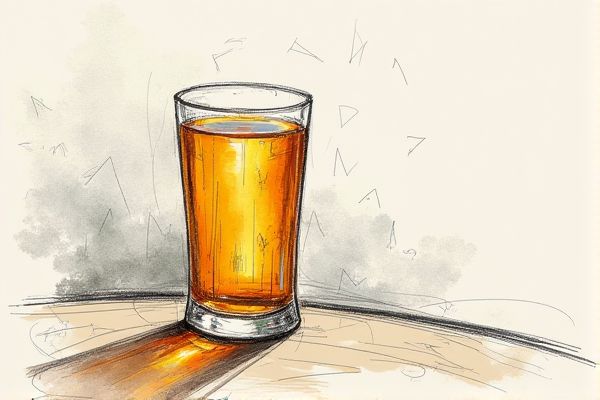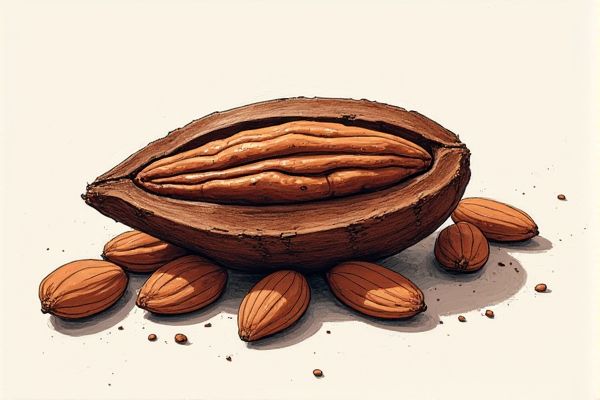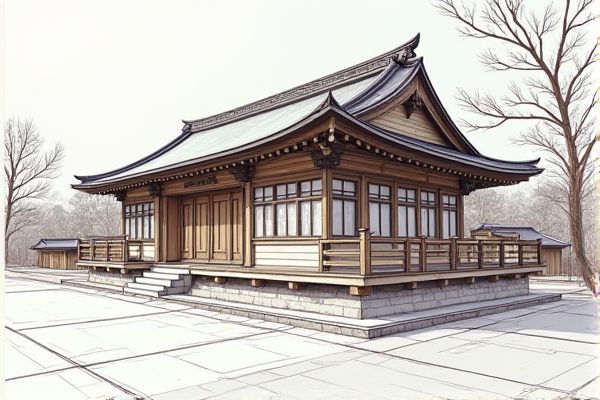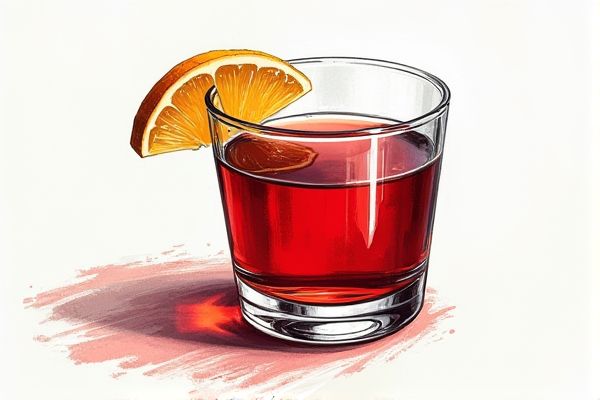Cachaca, a traditional Brazilian spirit, has been delighting palates around the world with its unique flavor profile and rich cultural heritage. Known for its distinctive taste, made from fermented sugarcane juice, this spirit is the cornerstone of the famed Caipirinha cocktail. Whether you are a seasoned cachaca enthusiast or new to exploring its depths, choosing the right brand can greatly enhance your drinking experience. Below, we invite you to discover a curated list of the best cachaca brands that promise both quality and authenticity.

Illustration of cachaca
Best brands of cachaca in 2025
Novo Fogo
Novo Fogo is a renowned producer of organic cachaca, known for its commitment to sustainable and environmentally friendly production processes. Founded in 2004 by Fulgencio Torres Viruel and Agenor Maccari, the brand was launched in 2010 and gained significant recognition after acquiring the facilities of Agroecologia Marumbi SA, a USDA organic certified distillery, in 2015. Novo Fogo's cachacas are derived from sugar cane grown without herbicides or pesticides, with manual harvesting and fermentation using wild yeast. The brand's "Tanager" cachaca, aged in a combination of Four Roses ex-bourbon and arariba barrels, has received high acclaim for its unique flavor profile. Novo Fogo is also a carbon-negative company, minimizing waste and purchasing carbon offsets to ensure a neutral carbon footprint across its entire supply chain.
Leblon
Leblon Cachaca is a premium artisanal brand, renowned for its high-quality cachaca produced at the Destilaria Maison Leblon in Patos de Minas, Minas Gerais, Brazil. Introduced in 2005, Leblon has gained international recognition, available in markets including the US, Europe, Canada, and Asia. It has won numerous awards, including a nine-consecutive-year run of Gold Medals at the San Francisco World Spirits Competition. Leblon is the house pour in 18% of bars and a top three in more than a quarter, reflecting its popularity globally. The brand is known for its traditional batch distillation in copper potstills and aging in Vintage XO Cognac Casks from France.
Yaguara
Yaguara is a highly regarded brand in the cachaca industry, known for its organic and sustainable production methods. As a fifth-generation family-owned producer, Yaguara has made significant strides, particularly in the export market, where it has been a top performer. In 2022, Yaguara topped both the bestselling and trending lists in the Brands Report, with its products being a common choice in over three-quarters of bars globally. The brand's commitment to sustainability, including the use of solar panels and the reuse of byproducts to create biofuel, has contributed to its success and appeal to environmentally conscious consumers. Yaguara's presence in the global market is a testament to the growing recognition and appreciation of cachaca beyond Brazil.
Avuá
Avua is a renowned producer of artisanal cachaca, a spirit made from fresh sugarcane juice, with a history dating back to 1923 at the Fazenda da Quinta distillery in Rio de Janeiro. Avua cachacas are known for their high quality, featuring expressions like Avua Prata and Avua Amburana, the latter aged up to two years in amburana wood casks and bottled at 80 proof. The brand was launched in 2013 by co-founders Pete Nevenglosky and Nate Whitehouse, and it has gained significant recognition for its unique and complex profiles. Avua cachacas are bottled between 38% and 54% ABV, with up to six grams of added sugar per liter allowed. The brand's focus on education and engagement has made it a favorite among bartenders and craft spirits enthusiasts. For more information, visit their official website.
Cachaça 51
Cachaca 51, owned by Companhia Muller de Bebidas, is one of the leading producers of cachaca in Brazil, holding an impressive 18% market share. In 2018, the brand recorded volume sales of 13.3 million 9-liter cases worldwide, highlighting its significant global presence. As a major player in the industry, Cachaca 51 contributes substantially to Brazil's cachaca production, with Sao Paulo being the primary state for industrial cachaca production. The brand's success is part of the broader growth of the global rum and cachaca market, which is expected to expand at a CAGR of 7.04% from 2024 to 2031. Cachaca 51's performance underscores the popularity and economic significance of cachaca both domestically and internationally. You can learn more about the cachaca industry in Brazil on this informative page.
Pitu
Pitu Cachaca, produced by the family-run company Engarrafamento Pitu Ltda. in Pernambuco, Brazil, is one of the most renowned and consumed cachaca brands in the country. Founded in 1938, Pitu has become the second most consumed cachaca in Brazil and is recognized internationally, with exports to over 50 countries starting from the 1970s. The company, now in its fourth generation, emphasizes the versatility of cachaca, which can be consumed in various ways, including the popular Caipirinha cocktail. Pitu Cachaca is made from the juice of newly harvested sugar cane, undergoing fermentation and distillation before being rested in marrying tanks to enhance its flavor. Despite the global market's limited familiarity, Pitu remains a staple in Brazilian culture, contributing significantly to the local economy. For more information, visit Pitu Cachaca's official website.
Sagatiba
Sagatiba is a prominent brand in the Brazilian cachaça industry, known for its high-quality production and significant market presence. In 2011, the brand was acquired by Italy's Gruppo Campari, which has since seen an annual increase in revenue, though exact figures are not disclosed. Sagatiba accounts for a notable share of the market, with its advertising targeted at a young, hip crowd to emphasize the product's quality. The brand is highly regarded for its smooth and sweet flavor profile, with notes of black pepper, sugar cane honey, and rose water, making it a top value in the cachaça market. For more insights into the cachaça industry in Brazil, click here.
Weber Haus
Weber Haus is one of the most celebrated Cachaca producers in Brazil, founded in 1824 by German immigrants and currently run by the Ivoti family, who have been involved in Cachaca production for over 70 years. The brand follows strict organic production methods and produces around 500,000 litres of spirits per year, with their products available in 19 countries. Weber Haus Cachaca is produced in small batches using copper pot stills and has won over 100 national and international awards. Their premium offerings, such as the Weber Haus Cachaca Premium Black, are aged in a blend of French Oak and Balsam wood, enhancing the quality and complexity of the spirit. The brand produces around 600,000 bottles of Cachaca annually, along with 70 other beverage products.
Velho Barreiro
Velho Barreiro is a renowned brand of cachaca, known for its traditionally made and high-quality spirit. Founded in 1975 by Industrias Reunidas de Bebidas Tatuzinho, this brand stands as one of the big names in Brazil, where over 80% of the 1.3 billion liters of cachaca produced annually are consumed. Velho Barreiro cachaca is double distilled in a column still and matured in oak vats, with some varieties aged for up to 3 years, resulting in a spirit with depth and complexity. It has a 40% ABV and is highly regarded for its balanced flavor profile, making it an excellent choice for caipirinhas and other cocktails. The brand's Gold Cachaca, introduced in 1999, has become particularly popular for its smooth and sweet yet peppery finish. For more details, explore their offerings on the Velho Barreiro Cachaca page.
Salinas
Salinas, known as the national capital of artisanal cachaca, is renowned for its high-quality production, boasting over 60 brands and an estimated annual output of around five million liters. The region, particularly the Salinas Association of Artisan Cachaca Producers (Apacs), represents about 50 companies, with 25 of them holding the Seal of Geographic Indication from the National Institute of Industrial Property (INPI), a certification that highlights the unique terroir and production standards of the area. Salinas' cachaca economy generates approximately R$ 3 million per year, contributing significantly to the local economy, with about a third of the ICMS revenue arising from cachaca production. The city has hosted the annual World Festival of Cachaca since 2002, attracting tourists and showcasing the tradition and variety of cachaca brands like Havana-Anisio Santiago, which is recognized as Intangible Cultural Heritage of Salinas. The region's focus on quality, tradition, and differentiated products has positioned Minas Gerais at the forefront of handmade cachaca production in Brazil. For further insights, visit the official news source from Agência de Notícias IBGE.
















Leave a Reply
Your email address will not be published.